-
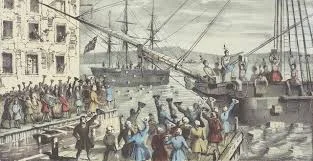 a protest of political and mercantile, it was one of the key events in the lead up to the American Revolutionary War and, ultimately, American independence.
a protest of political and mercantile, it was one of the key events in the lead up to the American Revolutionary War and, ultimately, American independence. -
 the first military engagements of the American Revolutionary War. British troops, sent to seize colonial military supplies in Concord, clashed with local militiamen in Lexington
the first military engagements of the American Revolutionary War. British troops, sent to seize colonial military supplies in Concord, clashed with local militiamen in Lexington -
 The declaration of independence was signed by 56 delegates representing the Thirteen Colonies eventually signed the document. John Hancock, as President of the Continental Congress, signed first and notably large
The declaration of independence was signed by 56 delegates representing the Thirteen Colonies eventually signed the document. John Hancock, as President of the Continental Congress, signed first and notably large -
 a pivotal period for the Continental Army during the American Revolutionary War. Facing harsh conditions and shortages, the army, led by George Washington, endured a grueling winter at a camp near Philadelphia. Despite suffering from lack of supplies, disease, and deaths, the experience ultimately strengthened the army, transforming it into a more disciplined and cohesive fighting force
a pivotal period for the Continental Army during the American Revolutionary War. Facing harsh conditions and shortages, the army, led by George Washington, endured a grueling winter at a camp near Philadelphia. Despite suffering from lack of supplies, disease, and deaths, the experience ultimately strengthened the army, transforming it into a more disciplined and cohesive fighting force -
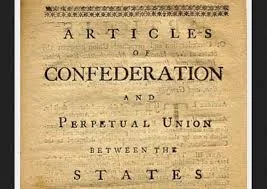 the first government of the newly independent United States. After 16 months of debate, the Continental Congress adopted the Articles on November 15, 1777, but ratification by all 13 states was required for them to take effect. Maryland's ratification on March 1, 1781
the first government of the newly independent United States. After 16 months of debate, the Continental Congress adopted the Articles on November 15, 1777, but ratification by all 13 states was required for them to take effect. Maryland's ratification on March 1, 1781 -
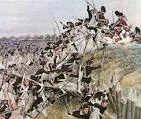 a decisive land and sea campaign that effectively ended the fighting in the American Revolutionary War. A combined American and French force, led by George Washington and the Marquis de Lafayette, trapped the British army under General Cornwallis at Yorktown
a decisive land and sea campaign that effectively ended the fighting in the American Revolutionary War. A combined American and French force, led by George Washington and the Marquis de Lafayette, trapped the British army under General Cornwallis at Yorktown -
 ratification process involved nine out of thirteen states voting to approve the document
ratification process involved nine out of thirteen states voting to approve the document -
 Federal Hall in New York City. He was sworn in as the first President of the United States by Chancellor Robert R. Livingston. Following the oath, Washington delivered his inaugural address to a joint session of Congress.
Federal Hall in New York City. He was sworn in as the first President of the United States by Chancellor Robert R. Livingston. Following the oath, Washington delivered his inaugural address to a joint session of Congress. -
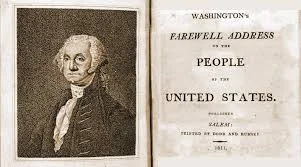 a letter written by President George Washington as a valedictory to "friends and fellow-citizens" after 20/45 years of public service to the United States. He wrote it near the end of the second term of his presidency before retiring to his home at Mount Vernon in Virginia
a letter written by President George Washington as a valedictory to "friends and fellow-citizens" after 20/45 years of public service to the United States. He wrote it near the end of the second term of his presidency before retiring to his home at Mount Vernon in Virginia -
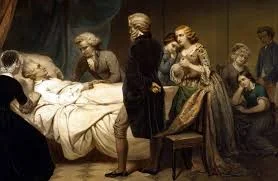 George Washington was a Founding Father and the first president of the United States, serving from 1789 to 1797. As commander of the Continental Army, Washington led Patriot forces to victory in the American Revolutionary
George Washington was a Founding Father and the first president of the United States, serving from 1789 to 1797. As commander of the Continental Army, Washington led Patriot forces to victory in the American Revolutionary -
 Supreme Court case that established the principle of judicial review, the power of the federal courts to declare laws unconstitutional
Supreme Court case that established the principle of judicial review, the power of the federal courts to declare laws unconstitutional -
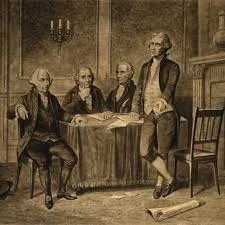 before Election Day on December 3, when electors "meet in their respective States, and vote by Ballot for two Persons, of whom one at least shall not be an Inhabitant of the same State with themselves" in accordance with the Constitution
before Election Day on December 3, when electors "meet in their respective States, and vote by Ballot for two Persons, of whom one at least shall not be an Inhabitant of the same State with themselves" in accordance with the Constitution